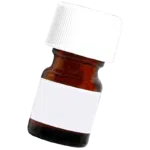Genital warts
Topical antivirals for genital warts.
Outside the US? Find us where you live.
Genital warts are caused by a sexually transmitted infection, called HPV. There are creams and solutions that can help to get rid of them.
Answer a few questions about your health, and an expert clinician can recommend treatments tailored for you. Get genital warts treatment online, when you want it.
Genital warts are caused by a sexually transmitted infection called the human papillomavirus, usually referred to as HPV. The warts are little growths or lumps that develop around the penis, vagina or anus, and can sometimes be mistaken for pimples. You can have a single one or multiple, and they can even be small enough to go undetected.
You can get genital warts by having unprotected oral sex, and more commonly through anal or vaginal sex with someone who’s infected. HPV can be spread even if you’re asymptomatic, so anyone who is sexually active is at risk of contracting the infection, even if you only have one sexual partner.
Anyone who is sexually active is at risk of getting genital warts, no matter what their age and gender are. But numerous studies have shown that younger people are at higher risk of contracting HPV.
The highest prevalence occurs amongst teens and young adults between the age of 15 and 25, with over 75% of cases happening in this age range.
Human papillomavirus is the most common sexually transmitted infection in the world, and it is estimated that all sexually active men and women will contract the infection at least once in their lives, but most people will be unaware of it since they might not develop any symptoms.
The incidence of genital warts in adults is similar amongst men and women, with around 195 cases per 100,000 people at any given time, peaking between the ages of 20 and 29. Children can get it too, but it’s rare and mostly stems from the mother passing it to them during childbirth.
The development of genital warts in HPV cases is the most common complication, and it’s often found to be a risk factor in the development of anal and oral cancers.

How we source info.
When we present you with stats, data, opinion or a consensus, we’ll tell you where this came from. And we’ll only present data as clinically reliable if it’s come from a reputable source, such as a state or government-funded health body, a peer-reviewed medical journal, or a recognised analytics or data body. Read more in our editorial policy.
Genital warts are caused by HPV, a sexually transmitted infection that can affect anyone who is sexually active. The warts are caused by two types of HPV, strains HPV6 and HPV11, which have a low prevalence compared to other strains.
You can get genital warts by having unprotected oral or vaginal sex, or oral sex with someone who’s infected. Having unprotected sex is always a risk since people can carry HPV without symptoms, and so they may be unaware that they’re carrying the virus. You can develop symptoms years after you’ve been infected, so it can be hard to pinpoint when and how you got it.
Genital warts come in various shapes and sizes. They can be flat or raised, flesh-coloured or whitish, and you can have a single one or multiple in the same area. Usually, when you develop a lot of warts close together, they can develop a texture similar to a cauliflower’s surface.
The warts are more likely to appear on the vulva, the shaft and head of the penis, the scrotum, the groin, the anus, and the perineum (the area separating the genitals and the anus). But they can also develop internally in the vagina, the cervix, and the anal canal, which will make them harder to detect. Less commonly, they can appear in the mouth or throat if you’ve had unprotected oral sex with someone with HPV.
Genital warts will usually cause no strong pain. But they may cause some discomfort, mild pain, itching, and bleeding. Itching is the most common sensation associated with genital warts, as bleeding and pain will usually only happen if there’s friction. This can happen when you have sex or wear tight clothes. If you have internal warts you may also feel discomfort and a burning sensation when you go to the toilet.
Genital warts can cause some complications. If you have warts on the cervix or inside the vagina, these can cause cervical changes which then leads to cervical cancer. That is one of the reasons why the HPV vaccine is recommended for young adults before they even become sexually active. The HPV vaccine could prevent as many as 100,000 cancers, as it’s estimated that 5% of cancer cases in the world are caused by this virus.
If you’re pregnant, your hormone levels can cause the warts to bleed, get larger and multiply. If that happens, you might need to have a C-section. You can also pass the virus to your baby, which may lead to your child developing warts inside their airways. This is a very rare complication, though.

How we source info.
When we present you with stats, data, opinion or a consensus, we’ll tell you where this came from. And we’ll only present data as clinically reliable if it’s come from a reputable source, such as a state or government-funded health body, a peer-reviewed medical journal, or a recognised analytics or data body. Read more in our editorial policy.
The most common method of treatment for genital warts is topical creams. Of these, we have Podofilox, Imiquimod and Condylox.
Other than the topical treatments, you may need to remove genital warts surgically, or through cryotherapy, a method that freezes and removes the warts using liquid nitrogen.
Surgically removing genital warts via excision is done when the warts keep coming back after other methods of treatment have been tried. It can be used when warts are widespread.
Cryotherapy is only used when the warts are limited to a single area. It’s often used when the warts are located near the anus or in the anal canal, and are causing significant discomfort.
Other than these treatments, there’s a vaccine available for younger people that’s given routinely before you become sexually active. This vaccine is recommended especially to women, who are more at risk of developing cervical cancer caused by some strains of HPV.
The best treatment for you will depend on your individual health needs. You might have to try a couple of treatments before you find one that helps you.
There’s no cure for HPV, but with time your body will get better at fighting the virus. The treatment focuses on removing the warts themselves, rather than curing people of the virus. Younger people are also offered a vaccine to prevent HPV, especially those at higher risk of developing cervical cancer.
Yes, genital warts always need treatment. Even if they seem to clear up by themselves, the infection will still be in your body, and you can still transmit it to potential partners, or your baby during childbirth.

How we source info.
When we present you with stats, data, opinion or a consensus, we’ll tell you where this came from. And we’ll only present data as clinically reliable if it’s come from a reputable source, such as a state or government-funded health body, a peer-reviewed medical journal, or a recognised analytics or data body. Read more in our editorial policy.
Have something specific you want to know? Search our info below, or ask our experts a question if you can’t find what you’re looking for.
Human Papillomavirus: The Usefulness of Risk Factors in Determining Who Should Get Vaccinated. Reviews in Obstetrics and Gynecology, 1(3), pp.122–128.
Epidemiology and Burden of Human Papillomavirus and Related Diseases, Molecular Pathogenesis, and Vaccine Evaluation. Frontiers in Public Health.
STD Facts - Human papillomavirus (HPV). Centers for Disease Control and Prevention.
HPV vaccine could prevent over 100,000 cancers. GOV.UK.
Podofilox Topical Solution 0.5% Rx Only.
Aldara 5% Cream - Summary of Product Characteristics (SmPC) - (emc).
DailyMed - CONDYLOX- podofilox gel. [online] dailymed.nlm.nih.gov.

Genital warts treatment that removes warts and reduces inflammation, easy at-home administration.

Genital warts topical treatment that has antiviral properties to tackle the virus causing the warts.

Available as a cream or solution. Applied twice daily, 3 days on, 4 days off, for up to 4 weeks.

Registered with NPI (No. 1700446366)
Meet Laurenmarie
Registered with GMC (No. 4624794)
Meet Daniel
Registered with NPI (No. 1043478878)
Meet Joseph
Always read the leaflet that comes with your medication and tell us about any side effects you get.
We know health, but you know you.
Our experts tell you what’s safe, but you decide what’s best.
Answer a few questions and tell us about yourself. Get tailored advice from our clinicians so you can choose better.
Choose your treatment and how often you have it delivered.
We know things change. It’s the nature of life. We’ll check in regularly to make sure your treatment is still right for you.
Pause. Change. Skip. Start again. Any time you like.
Here are some other things we can help with.
Stop smoking treatments that can help you kick the habit forever, and reduce your risk of disease.
Tablets or injections. Tailored weight loss treatments combined with ongoing support from our experts.
We're making healthcare more about you. Sign up to our newsletter for personalised health articles that make a difference.
Disclaimer: The information provided on this page is not a substitute for professional medical advice, diagnosis, or treatment. If you have any questions or concerns about your health, please talk to a doctor.
We couldn't find what you're looking for.
Here's everything we treat. Or, if you're looking for something we don't have yet, you can suggest something.
If there’s a particular treatment or condition you’re looking for, tell us and we’ll look into it for you.
Submit your question here, or tell us if you’ve found an issue on our site.
You can continue as a guest, or sign in with your Treated account if you have one.
By clicking 'Subscribe now' you're agreeing to our Privacy Policy.
You’re signed up to our newsletter. Keep an eye on your inbox for our latest update.
We’ll get back to you very soon. We aim to respond to all queries in one working day.
We’ve sent you an email asking you to confirm your email address.